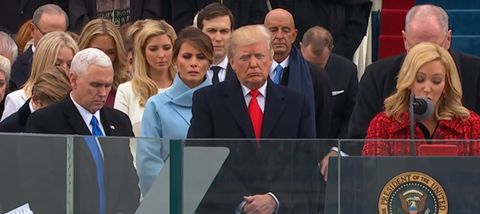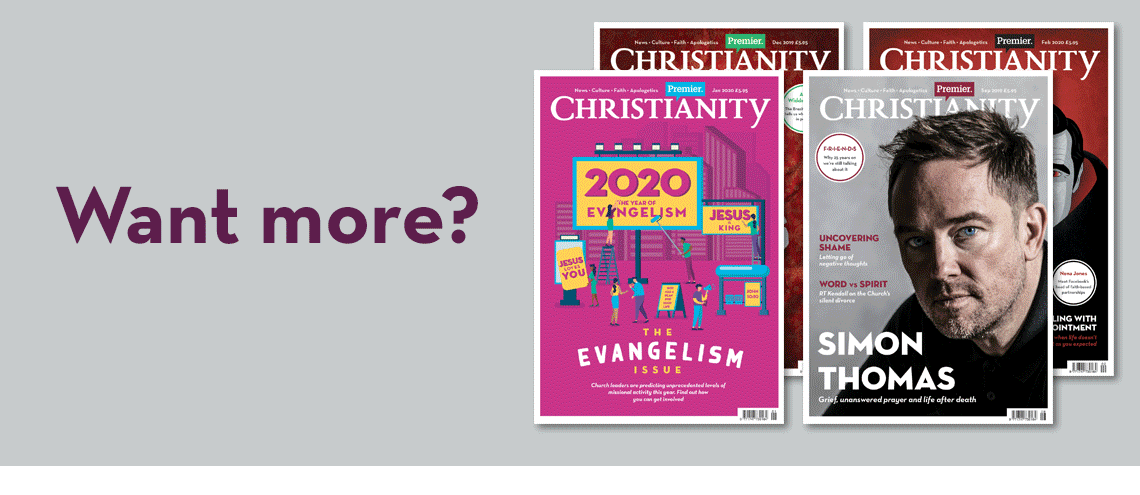
Many UK evangelicals are puzzled by the intense support offered by US evangelicals to Donald Trump. In 2016, Eighty-one per cent of Americans who identified as ‘evangelical’ voted for the incumbent leader.
The current influence of the evangelical right has long and convoluted roots, but it is a game-changer in the politics of the modern USA. With the next US presidential election looming, here’s a summary of some of the ways evangelical ideas are influencing the head of one of the world’s superpowers.
1. The appointment of conservative judges
In many ways this is the most important impact. The appointment of conservative judges to the Supreme Court and throughout the US justice system will mean that conservative judgements will decide key cases long after Trump’s last day in office. This is a strategy that the evangelical right share with other conservative and right-leaning groups within the USA and it is the long game.
2. ‘Right to Life’
This is perhaps the most significant of the targets that evangelicals have when encouraging the appointment of conservative judges. The ultimate target is challenging ‘Roe v Wade’ (1973) and rolling back abortion rights within the USA. If successful, it is not clear what the legal position most favoured by evangelicals will be. Some very extreme positions are currently emerging in Republican-run states, but these are largely designed to force the matter back to the Supreme Court.
3. A sense of American exceptionalism
The concepts of ‘America First’ and ‘Make America Great Again’ are US nationalist aims that clearly find a high level of support from evangelicals. For them, this is rooted in the belief that the USA, despite its separation of Church and state, is (or should be) a ‘Christian nation’. While this is rooted in 17th-century Puritan history, it clearly collides with the constitutional position of separation of Church and state, secular politics, and the multi-cultural and multi-religious nature of the modern USA. A privileged place for the Christian faith in the USA is desired by evangelicals but is highly contentious. It is also rooted in a conflict with modernity where aspects of contemporary US society are contrasted with a perceived past (real or mythical).
More evangelical leaders being present at the Trump inauguration, in 2017, than at any other one, pointed the way forward. But it should be noted that these are Christians of a particular flavour. Many other Christians are appalled. That adds to the contentious nature of the phenomenon.
4. Israel and Middle Eastern policy
Israel and Middle Eastern policy within an End Time context, is a distinctive feature of evangelical influence. This goes well beyond the traditional support for the State of Israel. Evangelical interpretations of biblical prophecy and belief in the imminence of the Second Coming mean that controversial policies – on things ranging from the movement of the US embassy to annexation of the Golan Heights – have occurred. These are not designed to win the support of American Jews. The target audience is those US evangelical Christians who are committed ‘Christian Zionists’.
5. Climate change denial
Here we see a combination of right-wing politics (also traditionally based on oil and coal production), passionate belief in a small-state and scepticism regarding human-caused climate change. The glue that holds together this combination is a particular evangelical world- and cosmic-view that sees human agency as ultimately irrelevant in deciding the future of the planet. It also is in line with resisting any international constraints on US freedom of action.
6. Equality and race
There is surely something significant that unites the lack of evangelical concern at allegations of racism, the deep desire for border walls (regardless of their effectiveness), verbal attacks on Hispanic incomers, rhetoric targeting minority groups, and the fact that African American evangelicals are largely not Trump supporters. Most of the eighty-one per cent of evangelicals who voted Trump in 2016 are White. This means that the polarisation of American politics clearly has a racial dimension that is alarming, though hard to pin down since Trump also publically promotes reduction in African American and Hispanic unemployment.
7. Gender and identity politics
This is nowhere near as openly referenced within the current administration as some of the other factors. Nevertheless, feminism, women’s rights and LGBT rights clearly do not sit well with conservative evangelical outlooks and are likely to experience more attention in due course. Clearly, the campaign against abortion has some of these areas as targets. In the meantime, vice-President Pence is seen as the representative of traditional Christian attitudes within the White House.
And then there are, what one might call, the ‘usual suspects’. Things such as opposition to gun control, universal health care and progressive taxation are difficult to square with any particular theological position but they are always in the conservative evangelical mix – almost as a given. This illustrates the extent to which US evangelical politics is as much indebted to traditional American small-state conservatism as it is to any particular theological position.
Martyn Whittock taught history in UK secondary schools for 35 years and is an experienced lecturer on a range of historical topics. He is a Licensed Lay Minister in the Church of England and is the author of forty-nine books. His latest, Trump And The Puritans (Biteback, 2020), co-written with James Roberts, provides an even-handed exploration of the complex subject of evangelical support for Donald Trump. The views expressed in this Blog, though greatly assisted by the writing of that book, remain Martyn Whittock’s personal views.
Premier Christianity is committed to publishing a variety of opinion pieces from across the UK Church. The views expressed on our blog do not necessarily represent those of the publisher





























